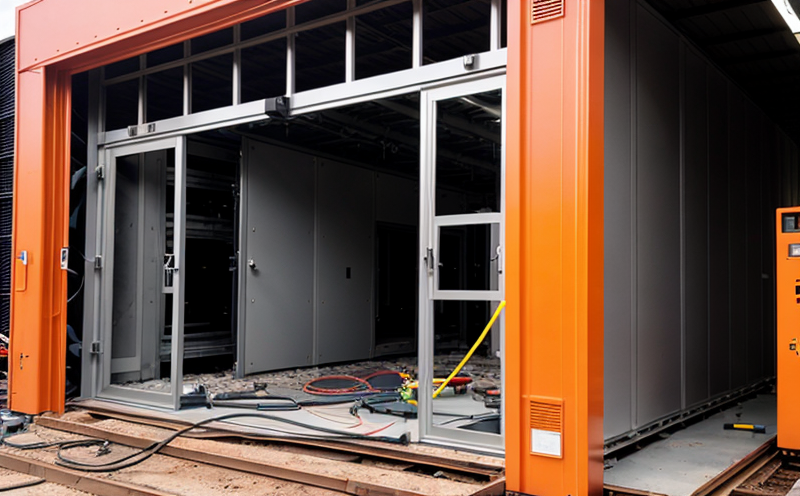IEC 62619 Thermal Safety Testing of Industrial Lithium Batteries
The IEC 62619 standard is a crucial framework for ensuring the thermal safety and reliability of industrial lithium batteries. This international standard provides comprehensive guidelines to prevent potential hazards associated with battery overheating, thermal runaway, and other thermal instabilities that can lead to catastrophic failures.
Thermal management in industrial lithium batteries is paramount due to their extensive use across various sectors such as telecommunications, automotive manufacturing, and energy storage systems. These batteries are often subjected to harsh operating conditions, including high temperatures, mechanical stress, and electrical overloading. Ensuring the thermal safety of these batteries not only protects the integrity of the products but also safeguards end-users from potential risks.
The testing procedures outlined in IEC 62619 involve a series of rigorous tests designed to simulate real-world conditions that might lead to thermal incidents. These tests include, but are not limited to, overcharge, short circuiting, mechanical abuse, and thermal cycling. Each test is conducted with the aim of identifying potential weaknesses or vulnerabilities in the battery’s design.
For quality managers and compliance officers, this service ensures that industrial lithium batteries meet stringent international standards. In addition to preventing safety hazards, these tests enhance product reliability, which can significantly impact a company's reputation and market standing. For R&D engineers, IEC 62619 provides a roadmap for developing safer and more robust battery technologies.
Proper preparation of the specimen is critical in this testing process. This involves ensuring that the batteries are representative of the production batch to be tested. The batteries must also undergo initial conditioning before testing to simulate real-world usage conditions accurately.
The instrumentation used for these tests includes specialized equipment such as calorimeters, thermocouples, and data acquisition systems capable of recording temperature changes in real-time. These instruments allow for precise monitoring of the battery’s thermal behavior during various stress scenarios.
Once testing is completed, the results are meticulously analyzed to determine compliance with IEC 62619 requirements. Compliance ensures that the industrial lithium batteries can be safely used under a wide range of operating conditions without posing risks to consumers or the environment.
The outcomes of these tests provide valuable insights into areas for improvement in battery design and manufacturing processes, ultimately contributing to safer and more reliable products. This service is not only beneficial for compliance but also serves as a competitive advantage by demonstrating a commitment to product safety and quality assurance.
International Acceptance and Recognition
- The IEC 62619 standard is widely accepted in numerous countries around the world, ensuring a consistent approach to thermal safety assessment.
- Many manufacturers from different regions adhere to this standard due to its comprehensive guidelines that enhance product quality and reliability.
This international acceptance highlights the importance of adhering to IEC standards for industrial lithium batteries. It ensures that products meet global expectations, thereby facilitating easier market entry in various countries.
Environmental and Sustainability Contributions
- The implementation of IEC 62619 helps in reducing the risk of environmental contamination from improperly disposed batteries. By ensuring safe operation and disposal, we contribute to a greener planet.
- This service supports sustainability by promoting responsible use and disposal practices that minimize harm to the environment.
Through adherence to these standards, companies can play a significant role in mitigating the environmental impact of industrial lithium batteries. This commitment not only enhances corporate responsibility but also aligns with global sustainability goals.
Competitive Advantage and Market Impact
The IEC 62619 service provides a competitive edge by ensuring that industrial lithium batteries meet stringent international standards. This compliance not only enhances product reliability but also builds trust with customers and stakeholders.
In the highly competitive market for industrial batteries, meeting these rigorous safety standards can differentiate products from competitors. It positions companies as leaders in innovation and quality assurance, thereby enhancing their market standing and reputation.





